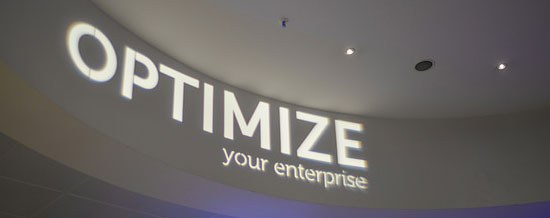Organizations are grappling with challenges to deal with explosion of digital content and the content management lifecycles are going through massive transformation. There is a visible shift towards automatic content recognition, content management of external and unstructured data (such as social media), centralization of content into cloud, hyper personalized and intelligent content delivery, along with a central focus on search and content discovery. Enterprises will, sooner or later, recognize with the anytime-anywhere-content paradigm to stay competitive.
The following emerging trends are disrupting the different stages of content lifecycle:
Multi-channel capture and recognition
Text-based content recognition, such as Optical Character Recognition- (OCR), and Intelligent Character Recognition (ICR) have come of age. Automatic Content Discovery (ACR) provides the opportunity to help incremental sales in recognizing music to trigger a new iTune transaction. Smart TVs are enabling possibilities to drive interaction and transactions through behind-the-scenes content (for example sports, drama and financial News) while context and location-based shopping services can convert in-store shoppers into ecommerce customers.
Social Content Management
Business-critical activities are increasingly happening through the social media. For example, many organizations are using social media for marketing, customer service and even sales. Internal collaboration tools, such as Yammer, also are being used as an effective employee service, satisfaction, and feedback platform. This makes tracking and record management of activity streams, blogs, photos, events, sound bites, videos, all the more important.
Content Storage in Cloud
Enterprise content sync and sharing is gaining popularity. The likes of Dropbox, OneDrive, Google drive, iCloud provide Storage as a Service (SaaS)-based models to enable central information and backup management across devices. This is actually helping Bring Your Own Device (BYOD) adoption and true anytime-anywhere-access to content. As advanced security, geo-specific datacenter and device management techniques are adopted we will see wider adoption.
Multi-channel Intelligent Content Delivery
Multi-channel, personalized, context-aware content delivery frameworks can be based on a variety of data, from the user's location, gender, customer type and transaction history, to the proximity to other devices, and time-of-day. This type of intelligent content delivery is becoming critical to deliver a good customer experience.
Search and E-discovery
There is a significant shift from structured data search to unstructured data search with metadata gaining importance. The ability to draw relationships between unstructured and semi-structured data (i.e., to get a more comprehensive customer profile, or identify fraud) is getting imperative. A combination of advanced content analytics, along with mobile and video search will soon become mainstream. Apart from simple metadata tagging we could see audio transcription and facial recognition, sentiment and relationships converted into searchable objects. Mobile search is more popular for context- and location-based services. Many restaurants, hotels, and retailers are effectively using mobile search-based advertising to drive revenue.
Dell has extensive experience in the areas of content management services across Healthcare, BFSI and Commercial industries. Dell with its large resource pool certified professionals in popular ECM platforms such as SharePoint, OpenText, Filenet, Documentum, Adobe, HP, Finenet etc. can help you charter an effective content management strategy that works best for your organization.
For more information visit Dell Enterprise Content Management and Collaboration Services.
